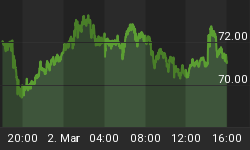The U.S.-China tech cold war is alive and well, and China’s most controversial tech company just cannot seem able to catch a break. Just a day after seven U.S. mobile companies expressed support for restrictions on the government’s telecom equipment purchases and sales to beleaguered telecom equipment manufacturer Huawei, another damning plot that could sink the company’s 5G ambitions has emerged. The Washington Post has reported that Huawei has been secretly building and maintaining North Korea’s commercial wireless network, providing the country with antennas, base stations and other critical mobile equipment. Further, the company also provided network integration, software and expansion services for North Korean telecoms provider Koryolink.
If true, those allegations would mean that the telecom company has been violating U.S. sanctions on North Korea that are intended to stop the country from developing nuclear weapons and ballistic missiles.
That could potentially land Huawei in hot water with the U.S. government. A month ago, the U.S. Commerce Department placed Huawei, China’s largest telecom equipment manufacturer, on the dreaded Entity List thus barring it from conducting business with U.S. corporations on grounds of being a national security threat. However, it granted a 90-day stay of execution that allows U.S. companies to conduct limited transactions with the estranged company.
Code-name A9
The Washington Post says its claims stem from several documents sourced from Huawei employees and uploaded on Github by the media house. These include contracts, work orders and detailed spreadsheets that track the company’s global operations.
According to the report, Huawei partnered with Chinese state-owned firm, Panda International Information Technology Co. Ltd, on a number of telecom projects in North Korea over an eight-year span. Huawei even had a code-name--A9--that it used to refer to N. Korea. The company allegedly had other code-names for other renegade nations such as Syria and Iran.
This indirect involvement made it harder to track Huawei’s actions.
Related: Climate Change Turns Mammoths Into $40M Market
Huawei has refuted the Washington Post allegations saying it has no presence in North Korea:
“Huawei is fully committed to comply with all applicable laws and regulations in the countries and regions where we operate, including all export control and sanction laws and regulations” of the United Nations, United States and European Union.’
Huawei spokesperson Joe Kelly though has refused to confirm whether the company has ever had any relations witn N. Korea while a Panda spokesperson also declined to comment on the matter.
Tech cold war
Huawei certainly is not a stranger to controversy.
The company has repeatedly come under fire for allegedly installing back doors on its mobile gear that allows it so spy on American companies and steal trade secrets. The hostilities have escalated in recent times with the company’s 5G race facing intense backlash even asTrump’s ban has been receiving bilateral support.
But most damning have been connections between the company and the Beijing government. As Democratic Sen. Chris Van Hollen has told Bloomberg TV:
"If Huawei is allowed to dominate the 5G infrastructure of the future around the world, that will compromise our national security interests and those of our allies. "Huawei likes to say it's an independent company, and it's not currently a state-owned entity ... but we all know the reality that at any moment, the government of China can take over Huawei and essentially dictate the terms ... in a way that undermines our national security interests.’’
But it’s not just Washington that has levered spying allegations on the company. Huawei has repeatedly found itself in a familiar bind after being banned by Australia, Japan and New Zealand while Germany, Canada and the EU are considering similar moves.
Not everybody is reading from the same page, though.
Some contend that the U.S. has simply been using the Huawei ban to gain political leverage in the ongoing trade war soap opera.
By Alex Kimani for SafeHaven.com
More Top Reads From Safehaven.com:

















